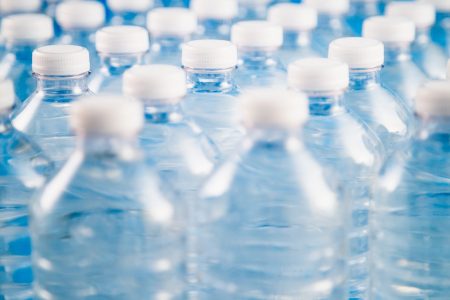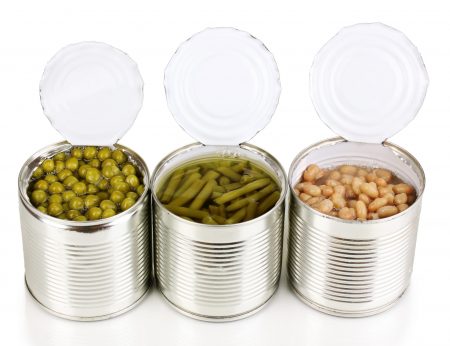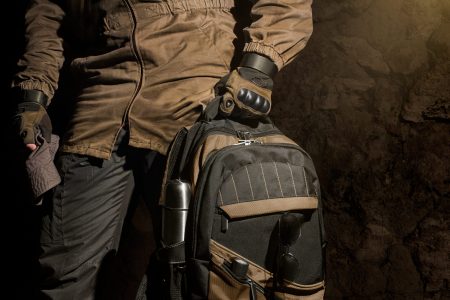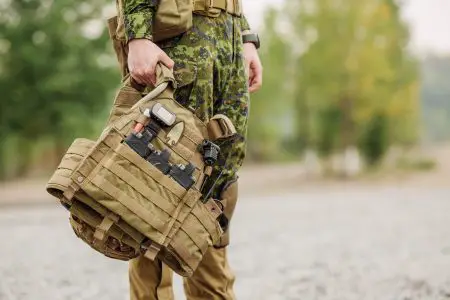New to Prepping?
If you’re new to prepping, then you’re probably getting barraged with a ton of info from all different sources. It can get overwhelming really quickly!
I’m going to try to make it a little easier on you by laying out the things that I think are the most important for you to do first and providing some useful information and links to articles that answer questions that usually pop up when you’re just getting started with prepping and preparedness.
[wc_toggle title=“Table of Contents” padding=“” border_width=“” class=“” layout=“box”]
[/wc_toggle]
[wc_box color=“inverse” text_align=“left” margin_top=“” margin_bottom=“” class=“”]
Thanks for supporting Ready Lifestyle! We participate in the Amazon associates program and other affiliate programs. We earn a small commission on qualifying orders at no expense to you.
Is it too Late to Start Prepping?
It’s never too late to start prepping! Don’t get discouraged if you’re just getting started.
There’s always going to be some kind of event going on in the world that could cause us to have to rely on the things that we’ve prepared, and it’s always going to seem like that event is too close to get ready for it. The good thing is nothing bad is probably going to happen right now! The bad thing is eventually something bad is going to happen…
We all started somewhere.
If there’s something specific driving you to get into prepping right now, then you’re in the right place. Get started, be ready for anything, and hope for the best.
What Should You Do First?
The first thing that you need to do is do something! Everything that you do gets you closer to being prepared. Don’t get caught up reading article after article for weeks on end and never taking any action.
Being prepared is all about moving forward and taking action! You’ll probably never reach a point where you’ll feel like you have enough water, food, medical supplies, etc. no matter how long you stay on the prepping path so make progress and know that you’re better off now than you were the day before.
Start Small and Work From There
Water and food are always going to be the most important thing you need. If you’re ever wondering what you should get next to further your preps, you can’t go wrong with water and food.
If you don’t have any water or food stored then your first goal should be to get 1 week of each stored for each member of your family. You should aim to have 1 gallon of water and 2,000 calories stored per day.
[wc_box color=“primary” text_align=“left” margin_top=“” margin_bottom=“” class=“”]
The only time that I’d recommend not starting by storing food and water first is if you have medication that you rely on for survival. If you fall into that category then I’d start by working to get a surplus of medication if you can.
[/wc_box]
After you reach the one-week goal, you should continue to store food and water until you have a full month of supplies for each member of your family. At this point, you’ll be far more prepared than most families in America!
I highly suggest that you don’t bother buying any other preparedness items until you have a full month of supplies for everyone in your home.
If you have plenty of money to spend then just buy what’s needed to get you to a month. If you’re strapped for cash you can gradually grow to that point. Either way, having a basic level of food and water is the most important part of prepping.
Your initial prepping goals:
- 1st Goal - 1 week of stored water and food. This equals 7 gallons of water and 14,000 calories of food per person in your family.
- 2nd Goal - 1 month of stored food and water. To reach the next goal, you should have 28 gallons of water and 56,000 calories of food for each member of your family.
Water Storage
Water should be the first thing that you focus on if there aren’t any easily accessible natural water sources close to where you live. Even if you have tons of water sources around your home, you should still try to get to the point where you have at least a full month’s supply of drinking water stored.
The cheapest way to get started is by refilling empty soda and juice bottles. Any bottle that’s strong and has a good screw on top will work as long as you can clean it out well.
Stay away from things like milk jugs since they’re hard to get completely clean, don’t have lids that seal well and can crack if they’re dropped and as they age.
The easiest way to get a decent amount of water stored quickly is to simply buy cases of bottled water. I prefer to buy name brand water because the bottles are usually stronger and have more secure lids.
If you just buy the cheapest water you can find, you should still be fine. I just like the stronger bottles because it just seems like they’re less likely to break and leak.
The best way to store water is in larger containers as long as you have space. Read our home water storage article in the recommended reading section to learn more.
How much water do you need to store?
FEMA recommends that you have at least three days of water stored per person. I just don’t believe that it’s enough.
Flooding, earthquakes and many other disasters can easily interrupt home water services for weeks or more! That’s why I suggest working toward at least one month if you can.
Recommended Reading:
- Home Water Storage
- Can You Drink Pool Water?
- How Long is Bottled Water Good For?
- How Much Water Do You Need to Survive?
Food Storage
Storing food should be your other priority when you first start prepping. We can survive for weeks without food, but it’s not something that anyone wants to do!
The cheapest way to start storing food is to buy rice, beans, corn, wheat and other staple foods that can be bought in large quantities and last for a long time. Check out our Cheap Survival Food article in the recommended reading below.
The easiest way to get all of the food storage you could ever want is to simply purchase freeze-dried food and have it shipped straight to your door. This is the most expensive way to get it done, but it’s definitely easy.
The best way to store food is by having a wide range of freeze-dried, canned, and long shelf life staple foods stored.
How much food do you need to store?
FEMA says the same thing about food that they do about water, have three days of food for everyone in the house. I also say the same thing about food as I do about water, start at one month and store more after that as you can.
Recommended Reading:
- What is Food Storage?
- Cheap Survival Food
- Survival Food Bars
- 10 Reasons Why Food Storage is Important
- Where to Store Survival Food
Bugging In
Bugging in is when a disaster strikes and you stay in your home and stay there throughout the entire disaster. Bugging in keeps you in a safe area that has all of your preps and your family in one place. This should be your first reaction to a disaster.
If you live in a place that you plan to leave as soon as some kind of disaster is headed your way, then I would suggest that you start looking for a new place to live. It may not be very practical for you right now, but you shouldn’t live in a place that’s too dangerous to stay in during a disaster.
Recommended Reading:
Bugging Out
Bugging out is when you grab emergency supplies and leave your home because it’s too dangerous to stay there or it’s going to become too dangerous to stay there. Bugging out should be one of the last resort measures that you take.
Bugging out should be your last resort because it takes you from a place that you know (and has all of your food and water already in place) and puts you out into the unknown. Natural disasters are one of the main reasons that people bug out.
Recommended Reading:
Knowledge is Power
You can never have enough knowledge! There is so much information available out there for free that it doesn’t make sense to not learn every single day.
My only warning is that you need to take action and not get stuck reading more and more articles on the internet! As long as you’re putting what you’re reading into action, you’re always going to be one step ahead of a majority of the population.
The first things you should learn as a new prepper:
- Water purification and storage
- Food preservation and storage
- First-aid
Recommended Reading:
- Diseases in an SHTF or Post Collapse Environment
- Prepping 2020
- How to Stop Bleeding
- Basic Survival Needs
What Can Cause an SHTF?
An SHTF is a disaster that sends our day to day lives into disarray. It doesn’t need to be a complete break down of society. It can be everything from a personal event, like losing your job, to a full-blown financial collapse or even an invasion from a foreign army.
Natural and man-made disasters can all lead to SHTF. Read our SHTF article in the recommended reading to learn more.
Recommended Reading:
Emergency Kits
I don’t suggest building a bunch of emergency kits and buying a lot of gear before you have a basic level of food and water stored for your family. If you have the money to trow at prepping then feel free to buy gear and emergency kits at the same time as you’re putting together food and water storage. If not, then focus on food and water first!
Bug Out Bags
Bug out bags are a self-contained kit that has everything you need in case you have to just grab one bag and hit the road. They’re talked about all over the place, and some people get distracted by building a bug out bag when they first get started prepping. Again, don’t worry about it until you have food and water stored.
Bug out bags are important and should be one of the first things you put together once you start buying gear, but they’re just not important to start out with.
Get Home Bags
A get home bag is a bag that’s designed to get you home from where ever you happen to be. Normally this place is work since you probably spend much of your day there when you’re not home.
Recommended Reading:
Weapons for Preppers
You should have a firearm of some kind to protect you and your family if you’re legally allowed to. I also suggest carrying a pistol with you every day. You never know when you may need it!
Outside of a home defense weapon and a carry pistol, I suggest having either an AR-15 or AK-47 style rifle for each adult in the family. Don’t go crazy buying weapons unless it’s a hobby because collecting weapons isn’t prepping.
Recommended Reading:
Body Armor for Preppers
Body armor is one of the last things that you should be thinking about if you’re just getting into prepping. There are definitely reasons to get body armor as a prepper, but it’s nothing that you need to worry about before you have all of your other bases covered.
Recommended Reading:
Conclusion
Just getting into prepping can be confusing and a little intimidating, but it doesn’t have to be. Start with the most important things, food and water, and then move on to other things when you have those in place.
Get started now and you’ll be way ahead of most people.
The previous article New to Prepping? Start Here! was first seen on: Ready Lifestyle
New to Prepping? Start Here! published first on https://readylifesytle.tumblr.com




Comments
Post a Comment